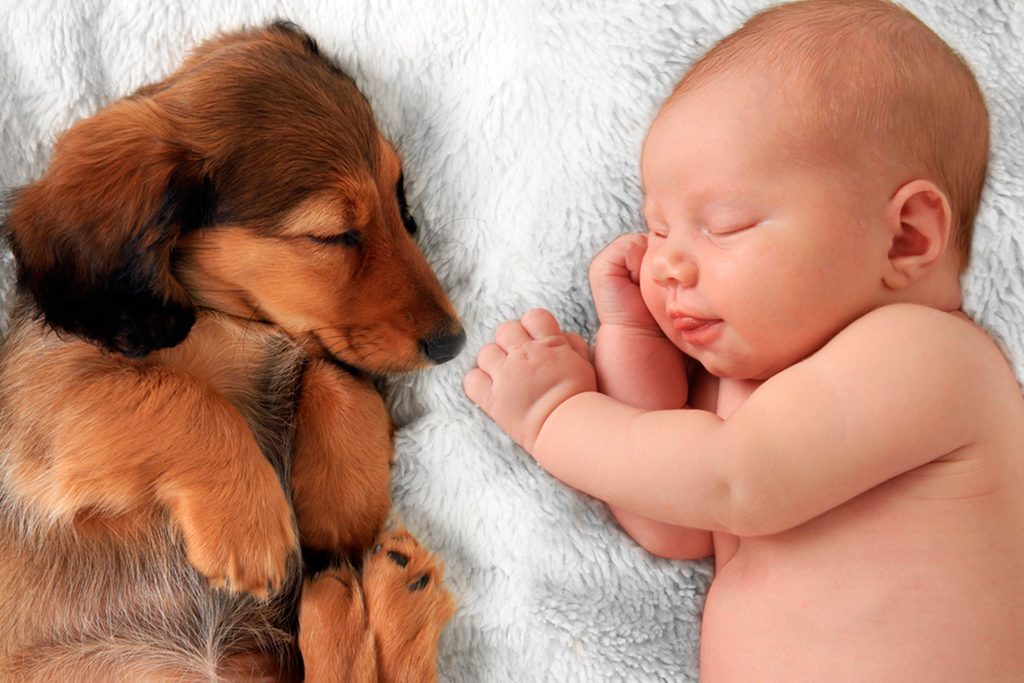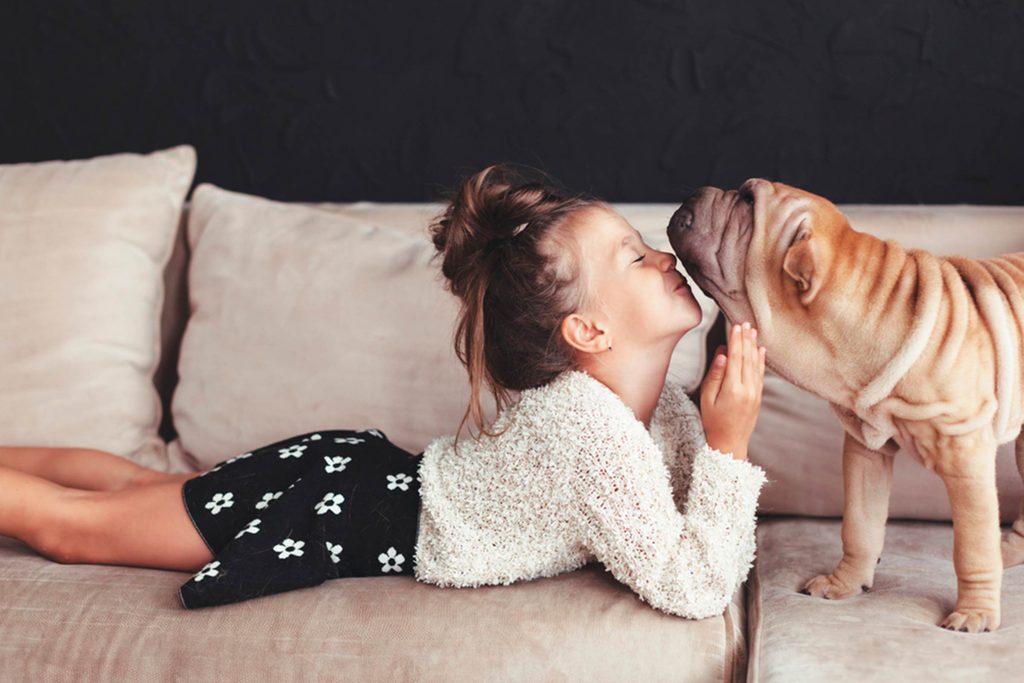This One Thing Lowers Risk of Allergies and Obesity in Babies (Hint: It Barks)
Updated: Aug. 25, 2017
Dog lovers have never needed any convincing, but now scientists have discovered that owning a dog is great for your baby.
Dogs aren’t called “man’s best friend” for nothing. Dogs have been beloved family members for generations, but now research has uncovered significant health benefits of owning a dog.
Scientists from the Faculty of Medicine & Dentistry at the University of Alberta investigated whether owning a furry pet could improve children’s health. Families have sometimes been reluctant to have pets in case it sparks allergies, but this research showed that the opposite is true.

Building on previous findings over 20 years showing that children with dogs had a lower rate of asthma, the team followed expectant mothers to see if their babies showed healthy levels of specific microbes in their gut. These microbes are linked to the development of allergies and obesity in children.
It’s believed that owning a furry pet (over 70 percent of the animals in the study were dogs), exposes children to dirt in the animal’s fur or paws. This dirt transfers to the child either directly, or via other family members, causing them to build up immunity. Researchers measure this immunity by analyzing the levels of two important strains of bacteria—oscillospira and ruminococcus microbes in the gut.
The team followed three groups of families. Some owned pets during the later months of pregnancy and the first three months after birth, some only had pets during pregnancy (e.g. they relocated the pet before the baby was born), and some had no pets. Although results varied, families with pets showed an increase in the levels of these two important bacteria, up to double those of families with no furry friends.

This was despite other differences in factors that often impact on obesity and allergies, such as maternal asthma/allergy status, siblings, C-section vs vaginal delivery, and lack of breastfeeding.
Pet ownership also affects other health factors too. Around 20 percent of mothers carry Group B Strep (GBS). If this is transferred to babies during birth, they can develop GBS, which can cause fever, breathing difficulties, and feeding problems. In extreme cases they can develop meningitis, which can prove fatal. Women who test positive for GBS are given antibiotics when delivering. This study found that mothers who owned pets had a much lower incidence of GBS infection, and needed fewer antibiotics during delivery.
Unfortunately, there’s a limited period during which owning a furry pet can make a difference to your baby’s health.

“There’s definitely a critical window of time when gut immunity and microbes co-develop, and when disruptions to the process result in changes to gut immunity,” lead researcher Anita Kozyrskyj told Science Daily. The last six months of pregnancy and the first three months of baby’s life make all the difference.
Of course, owning or buying a pet outside of this time frame can still be good for you. Research has shown there are many other benefits to welcoming a furry friend into your home, including increased fitness and improved mental well-being from a loving relationship. So what are you waiting for? Go and find yourself a Fido!
